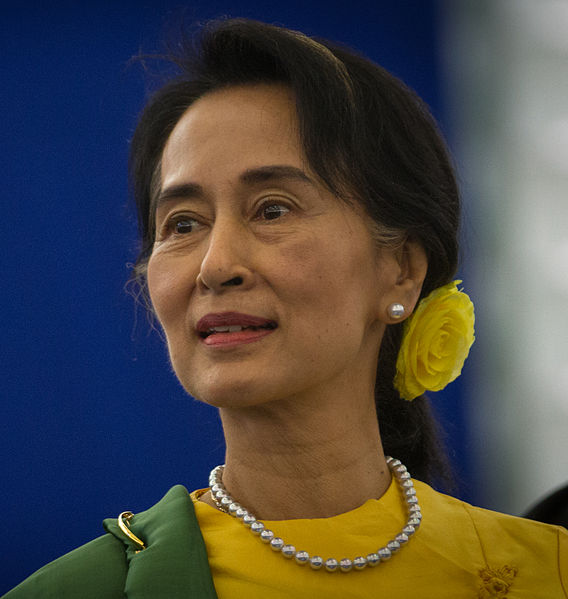Burma’s pro-democracy icon and Nobel Peace Prize laureate Aung San Suu Kyi has requested Western nations to resist imposing economic sanctions on her country, but called on them to urge the Burmese government to enter into dialogue with her party and other opponents.
Asked to respond to suggestions that the US and EU have hinted at reimposing economic sanctions, Suu Kyi said, “I don’t like going backwards, I like going forwards. So I think that rather than reintroducing old methods, I think what would help greatly is if everybody seriously put their minds to doing whatever they can to encourage negotiations to take place. I think that is the key. That is the doorway to the future.”
Speaking on BBC’s Radio 4 on Friday, she said the international community has been “over-optimistic” in its expectations for Burma, and that the process of economic and political reform under President Thein Sein is “not going as well as people hoped it would.”
With regard to the international community, Suu Kyi said, “They have not lost interest in Burma. They still want Burma to have a happy ending, but they think that they’ll get a happy ending simply by insisting that it is a happy ending. And that’s not how things happen.”
[related]
She criticised the Thein Sein government and the military, saying, “The executive is not that keen on genuine reforms – that is how we see it – because they do not want to amend the Constitution. Unless you want to amend the Constitution, then we cannot get on the genuine road to democracy.”
Under the current 2008 Constitution, opposition leader Suu Kyi is barred from running for the presidency or vice-presidency under Article 59(f) because her children have foreign citizenship.
Her party, the National League for Democracy (NLD), has spent the better part of the past year campaigning nationwide for constitutional reform, with an amendment to Article 436 at its helm. Article 436 states that changes to the charter must have the support of at least 75 percent of parliament. The NLD and other critics say that this effectively grants the Burmese military veto power over any constitutional change because it is appointed 25 percent of all seats in both houses of parliament. Observers say amending 436 could open the door to other constitutional changes, including lifting 59(f), allowing Suu Kyi to seek the presidency.
In her interview with BBC’s John Bercow on Friday, the NLD chairperson played down her own personal ambitions of becoming president of Burma. However, she appeared to revel in comparisons made between herself and freedom fighters Gandhi and Nelson Mandela.
Full BBC interview here.



